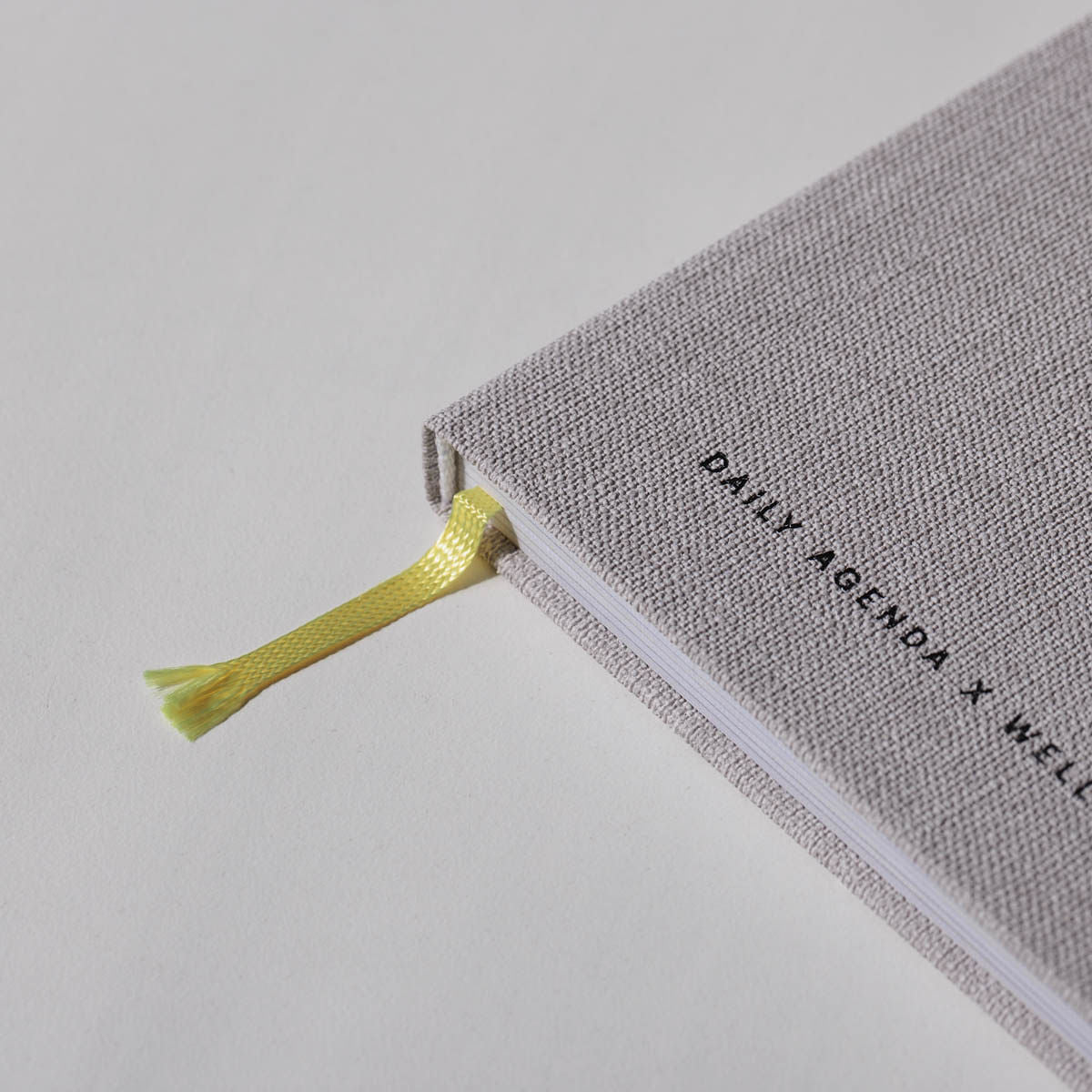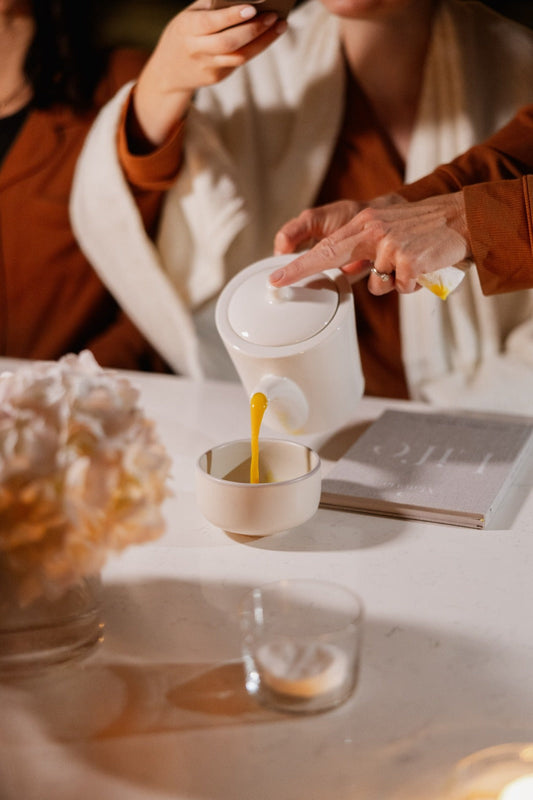Journaling Changes Your Life - Here's How
We communicate constantly - through messages, emails, social media. We write about how we communicate, explore new tools and ways of expressing ourselves. But how many of us actually communicate with ourselves? How many of us sit with our own thoughts, without filters and audience? If there's a perfect method for that, it's - journaling.
Becoming the best version of ourselves is, for many of us, the most important task in life. It's a task each of us does for ourselves. We all think we know what's on our minds, but we're often not actually aware of our thoughts.
"Every time I write, an idea comes out of me that I didn't know existed," said Beth Jacobs, Ph.D., a clinical psychologist and author of Writing for Emotional Balance.
Journaling isn't just putting thoughts on paper. It's a space where we learn how to be alone with ourselves, to listen to our own thoughts and witness, to be present to our experience. When we open a journal, it's not just an act of writing but a moment of introspection.
Journaling teaches us presence - how to inhabit our own inner world and understand the depths of our emotions. It's a practice that connects us to who we are and reminds us of the power of each moment we live.

Journaling Doesn't Have to Be a Spectacle
You don't have to be a writer or have grand ideas. It's enough to start. One sentence. One moment of peace. Writing isn't an obligation; it's a liberation. When you journal, you're actually exploring the things that bother you, but also those that fulfill you.
Regardless of how long you've been journaling, something transformative is bound to happen when you create this kind of creative space for yourself - and all you need is a pen and paper.
However, the thought of writing down your own thoughts can sometimes seem daunting or too demanding.
That's why we bring you a guide that will inspire you to start. Whether you're an experienced diarist or a complete beginner, these tips will encourage you to put pen to paper (or fingers to keyboard).

Benefits of Journaling
1. Improve Memory and Creativity
Journaling can calm the mind, allowing for better memory and recall, increases creative thinking, and opens the door to unexpected connections between different ideas, says James Pennebaker, Ph.D., a professor of psychology at the University of Texas at Austin, whose research has largely shaped the scientific basis of journaling-style writing.
2. Improve Sleep
Writing before bed can help you fall asleep faster and improve sleep quality. Scientists believe that addressing thoughts before sleep reduces worry and negative thoughts that might otherwise disrupt your sleep.
3. Boost Mood
Studies show that writing about feelings helps regulate parts of the brain related to emotional processing, which can lead to a calmer and happier state of mind. And better sleep further reduces the risk of depression and feelings of sadness, says Pennebaker.
4. Lower Blood Pressure, Stress, and Anxiety
Writing interrupts the cycles of rumination and worry that usually accompany difficult thoughts or experiences. When these thoughts are chronic, the body and mind remain in a state of heightened alertness, keeping blood pressure, stress hormones, and anxiety levels high. Writing helps break that pattern.
A Journal Is a Space for Freedom and Spontaneous Creativity
Diaries and personal records testify to the inner world of many famous people. Anaïs Nin, Virginia Woolf, Henry David Thoreau, and Sylvia Plath are just a few of the writers who used writing to understand themselves and the world around them. Oprah, Gloria Steinem, and many others have been keeping a diary since their teenage years.
Anaïs Nin began keeping a diary at the age of eleven, which became a laboratory for her thoughts and creative experiments. She said, "The diary taught me how to capture living moments." Similarly, Virginia Woolf viewed diary writing as a space for freedom and spontaneous creativity, calling it "a good practice that loosens the ligaments of the mind."
Henry David Thoreau saw his journal as a bridge between his present and future self, while Sylvia Plath saw her diary as a "door to her own inner freedom."

Writing as a Ritual of Connecting with One's Essence
Julia Cameron, author of The Artist's Way, introduces the concept of morning pages as a key tool for creative and emotional release. Her advice is to write three pages of free text every morning, without rules or censorship. Cameron explains how this helps remove "mental noise" and open up space for deeper, more honest thoughts. Morning pages are not just for writers; they are a tool for anyone who wants to better understand themselves and find clarity in everyday chaos.
Rick Rubin in his book The Creative Act emphasizes that creativity comes not from discipline but from ritual. Writing, as a daily practice, becomes a ritual that connects us to our own essence.
Tips for Starting a Writing Practice
If the idea of writing appeals to you, but you don't know how to start, here are a few tips:
-
Create Space: Find a quiet place where you feel comfortable. This could be a corner in your home, a park, or a favorite café.
-
Write Without Rules: Don't worry about grammar, style, or making sense. This is not the time for perfectionism.
-
Use Pen and Paper: The physical act of writing has a stronger connection to our thoughts than typing on a keyboard.
-
Set a Timer: Start with ten minutes a day. Writing doesn't have to be lengthy to be effective.
-
Be Honest: This is your space. No one will read what you've written, so be completely honest with yourself.

Materia Planner: Your Companion Through Introspection
If you're more of a guided journal type, we recommend the Materia Life Daily Agenda x Well-being Diary. This diary is also a tool for connecting with your own thoughts and setting priorities.
Designed without predefined dates, it adapts to your rhythm - because life isn't always predictable. Its six categories allow you to track your obligations, goals, and emotional state, creating space for daily introspection.
With the Materia planner, you can incorporate morning writing into your routine in a simple and inspiring way. Its minimalistic design and focus on wellbeing encourage you to focus on what truly matters.
The next time you feel pressure or chaos, grab a paper and pen. Start writing. The words will guide you.
Whether you write about gratitude, your feelings, or simply follow the stream of consciousness, this practice has the power to transform your mind and soul. So start today. Your thoughts are waiting, ready, we're sure of that.











